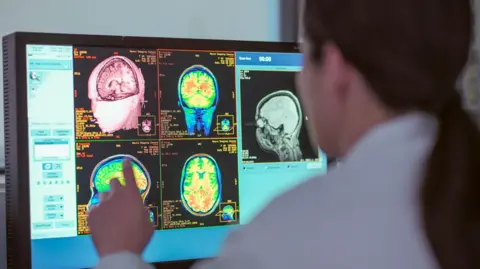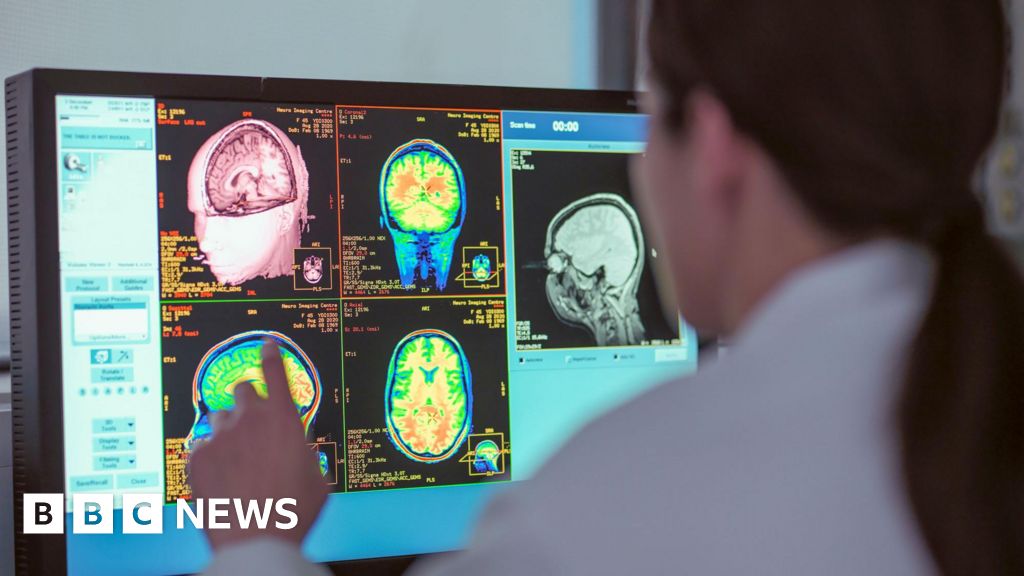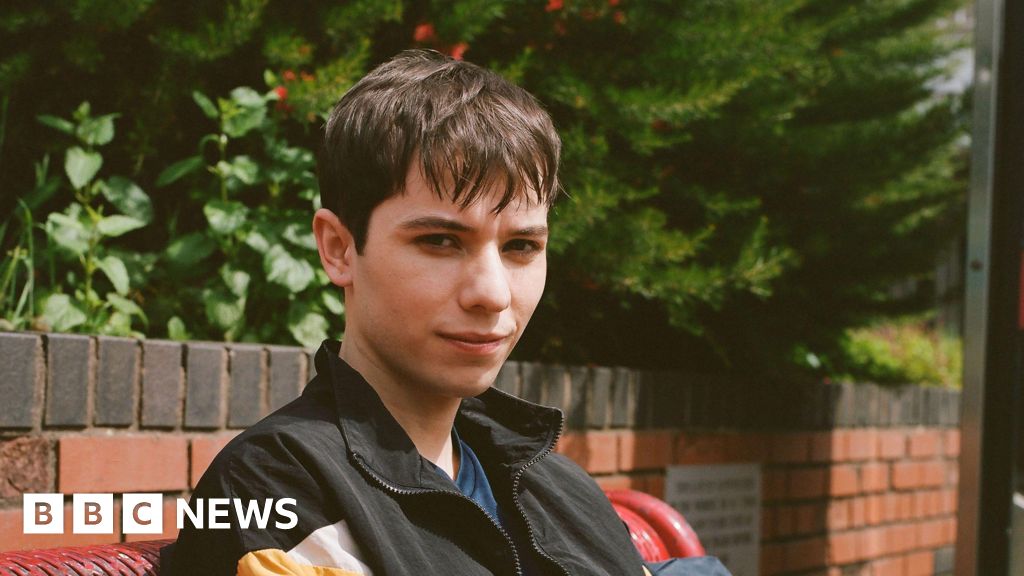James GallagherHealth and science correspondent
 Monty Rakusen/Getty
Monty Rakusen/GettyThe brain goes through five distinct phases in life, with key turning points at ages nine, 32, 66 and 83, scientists have revealed.
Around 4,000 people up to the age of 90 had scans to reveal the connections between their brain cells.
Researchers at the University of Cambridge showed that the brain stays in the adolescent phase until our early thirties when we "peak".
They say the results could help us understand why the risk of mental health disorders and dementia varies through life.
The brain is constantly changing in response to new knowledge and experience – but the research shows this is not one smooth pattern from birth to death.
Instead, these are the five brain phases:
Childhood - from birth to age nineAdolescence - from nine to 32Adulthood - from 32 to 66Early ageing - from 66 to 83Late ageing - from 83 onwards"The brain rewires across the lifespan. It's always strengthening and weakening connections and it's not one steady pattern - there are fluctuations and phases of brain rewiring," Dr Alexa Mousley told the BBC.
Some people will reach these landmarks earlier or later than others – but the researchers said it was striking how clearly these ages stood out in the data.
These patterns have only now been revealed due to the quantity of brain scans available in the study, which was published in the journal Nature Communications.
The five brain phases
Childhood - The first period is when the brain is rapidly increasing in size but also thinning out the overabundance of connections between brain cells, called synapses, created at the start of life.
The brain gets less efficient during this stage. It works like a child meandering around a park, going wherever takes their fancy, rather than heading straight from A to B.
Adolescence - That changes abruptly from the age of nine when the connections in the brain go through a period of ruthless efficiency. "It's a huge shift," said Dr Mousley, describing the most profound change between brain phases.
This is also the time when there is the greatest risk of mental health disorders beginning.
Unsurprisingly adolescence starts around the onset of puberty, but this is the latest evidence suggesting it ends much later than we assumed. It was once thought to be confined to the teenage years, before neuroscience suggested it continued into your 20s and now early 30s.
This phase is the brain's only period when its network of neurons gets more efficient. Dr Mousely said this backs up many measures of brain function suggesting it peaks in your early thirties, but added it was "very interesting" that the brain stays in the same phase between nine and 32.
Adulthood - Next comes a period of stability for the brain as it enters its longest era, lasting three decades.
Change is slower during this time compared with the fireworks before, but here we see the improvements in brain efficiency flip into reverse.
Dr Mousely said this "aligns with a plateau of intelligence and personality" that many of us will have witnessed or experienced.
Early ageing - This kicks in at 66, but it is not an abrupt and sudden decline. Instead there are shifts in the patterns of connections in the brain.
Instead of coordinating as one whole brain, the organ becomes increasingly separated into regions that work tightly together - like band members starting their own solo projects.
Although the study looked at healthy brains, this is also the age at which dementia and high blood pressure, which affects brain health, are starting to show.
Late ageing - Then, at the age of 83, we enter the final stage. There is less data than for the other groups as finding healthy brains to scan was more challenging. The brain changes are similar to early ageing, but even more pronounced.
Dr Mousely said what really surprised her was how well the different "ages align with a lot of important milestones" such as puberty, health concerns later in life and even the pretty big social shifts in your early 30s such as parenthood.
'A very cool study'
The study did not look at men and women separately, but there will be questions such as the impact of menopause.
Duncan Astle, professor of neuroinformatics at the University of Cambridge, said: "Many neurodevelopmental, mental health and neurological conditions are linked to the way the brain is wired. Indeed, differences in brain wiring predict difficulties with attention, language, memory, and a whole host of different behaviours."
Prof Tara Spires-Jones, director of the centre for discovery brain sciences at the University of Edinburgh, said: "This is a very cool study highlighting how much our brains change over our lifetimes."
She said the results "fit well" with our understanding of brain ageing, but cautioned "not everyone will experience these network changes at exactly the same ages".












